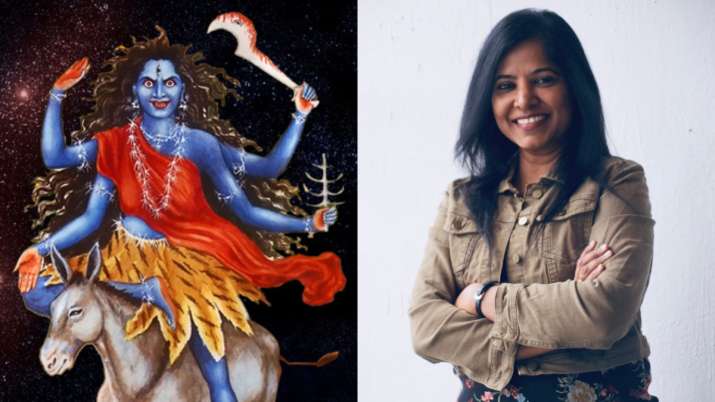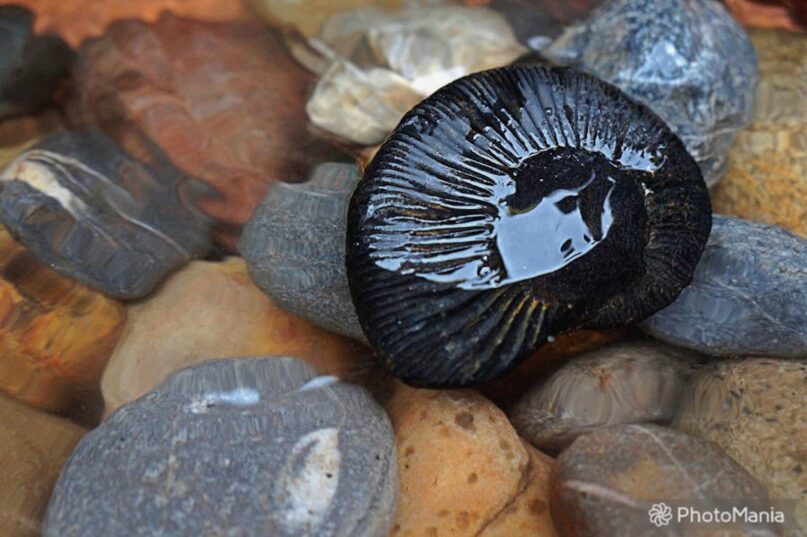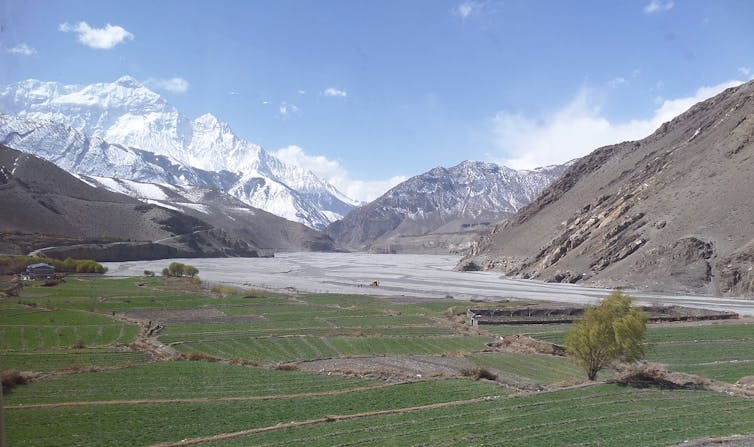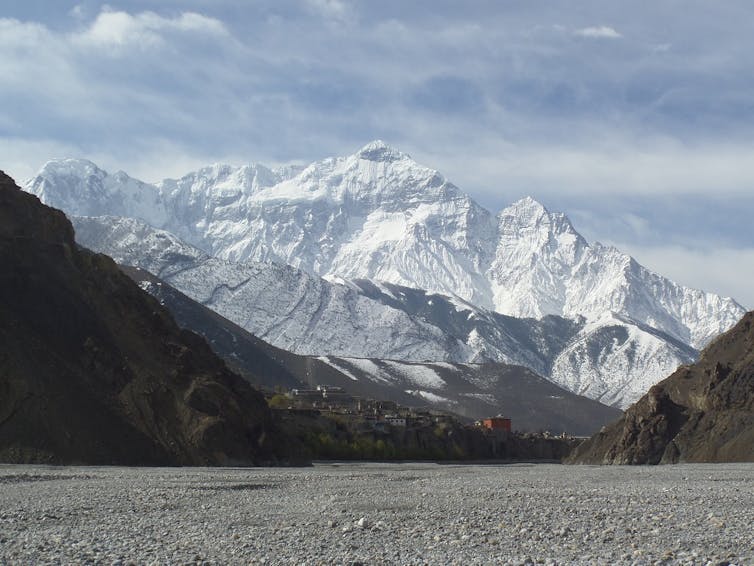Leena Manimekalai said that the documentary revolves around the events that take place one evening, when Goddess Kali appears and strolls on the streets of Toronto.
Edited By: India TV Entertainment Desk

A controversial poster showing goddess Kaali smoking a cigarette has sparked off a massive uproar on the Internet. Netizens have been calling out the makers and accusing them of hurting religious sentiments. Filmmaker Ashoke Pandit was also one of them. He slammed the poster drawing parallel between it and Nupur Sharma's statement. He also called for the arrest of the film's director Leena Manimekalai.
Not just him, but there were many who alleged that the Hindu deity was being disrespected and demanded strict action against the filmmaker. Many also raised points on freedom of expression and noted that they want the Indian judiciary system to intervene and take strict action against the film.
Police complaint filed against Director Leena Manimekalai
A Delhi-based lawyer on Monday filed a police complaint against Director Leena Manimekalai over a controversial poster of her new documentary. The said controversial poster was shared by Manimekalai on social media on July 2. In the poster, Goddess Kaali has been shown smoking a cigarette.
It has sparked off a massive uproar on social media with demands to arrest the director trending on Twitter. "The Director has hurt my religious sentiments by showing Goddess Kali smoking which is highly objectionable and not acceptable in any manner," Jindal told IANS.
Demanding an immediate registration of FIR against the independent director, Jindal said that such a deplorable picture in context to the Hindu Goddess is extremely outrageous, atrocious and hurting the sentiments and belief of Hindu community.
"This deliberate and malicious acts, intended to outrage religious feelings of Hindu Community through highly objectionable video and photo from her twitter account by the accused which is well circulated in social media and all public platforms is an offence under section 295A ,298, 505, 67 I.T Act and 34 IPC and therefore penal action should be taken against the accused," the complaint filed with the Cyber Cell of Delhi Police read.
The lawyer further said that the objectionable video clip and photo must be banned and removed from the internet on immediate basis considering the defamatory impact and enrage it would cause to Hindus as it has disparaged the religious beliefs of a particular community.
About Leena Manimekalai's documentary 'Kaali'
According to a Tamil news portal, Manimekalai said that the documentary revolves around the events that take place one evening, when Goddess Kali appears and strolls on the streets of Toronto.
--with IANS inputs
Trinamool Congress MP Mahua Moitra while talking about a controversial film poster has said that it is up to individuals how they view their gods.

UPDATED: 05 JUL 2022 8:39 PM
Trinamool Congress MP Mahua Moitra on Tuesday stirred a controversy by saying that she has every right as an individual to imagine Goddess Kali as a meat-eating and alcohol-accepting goddess, as every person has the right to worship God and goddess in his or her own way.
While the BJP went hammer and tongs against Moitra and wondered if it was the official stand of West Bengal’s ruling party to insult Hindu gods and goddesses, the TMC distanced itself from the comment and condemned it.
While taking part in India Today Conclave East held in Kolkata, the Krishnanagar MP said it is up to individuals how they view their gods.
“If you go to Bhutan or Sikkim, for example, when they do puja, they give whisky to their god. Now, if you go to Uttar Pradesh and say that you give whisky to your god as prasad, they will say that is blasphemous,” she said. Moitra said that people have the right to imagine their gods or goddess in the way they want.
“For me, Goddess Kali is a meat-eating and alcohol-accepting goddess. And if you go to Tarapith (a major Shakti peeth in West Bengal's Birbhum district), you will see sadhus smoking. That is the version of Kali people worship (there). I, within Hinduism, being a Kali worshipper, have the right to imagine Kali in that way; that is my freedom,” she said.
Moitra said this when asked about a film that had courted controversy after it had put up posters showing Goddess Kali smoking. Moitra said, “I have the freedom to do it (envision a meat-eating goddess) as much as you have the freedom to worship your god as vegetarian and white-clothed.” After her comments went viral, Moitra issued a clarification attacking the Sangh Parivar.
“To all you sanghis - lying will NOT make you better Hindus. I NEVER backed any film or poster or mentioned the word smoking. Suggest you visit my Maa Kali in Tarapith to see what food & drink is offered as bhog. Joy Ma Tara,” she tweeted. The BJP wondered whether insulting Hindu gods and goddess is the official stand of the TMC.
“TMC supremo and West Bengal Chief Minister Mamata Banerjee should clarify it. This is not the first time that such instances have been reported. Earlier too TMC leaders have done the same. We think this is the official stand of the ruling TMC to hurt the sentiment of Hindus to get votes,” BJP state vice-president Rathindra Bose said. The ruling TMC, however, distanced itself from the comments and condemned the remarks by Moitra.
“The comments made by @MahuaMoitra at the #IndiaTodayConclaveEast2022 and her views expressed on Goddess Kali have been made in her personal capacity and are NOT ENDORSED BY THE PARTY in ANY MANNER OR FORM. All India Trinamool Congress strongly condemns such comments,” the party said in a Twitter post.
‘Kali’ Controversy: TMC MP Moitra has stirred a controversy with her remarks that she has every right as ‘an individual to imagine Goddess Kali as a meat-eating and alcohol-accepting goddess’.

UPDATED: 06 JUL 2022 2:55 PM
Congress leader Shashi Tharoor on Wednesday said he is "taken aback by the attack" on Trinamool Congress MP Mahua Moitra for her comments on Goddess Kali, and urged people to "lighten up and leave religion" to individuals to practice privately.
Moitra on Tuesday stirred a controversy with her remarks that she has every right as "an individual to imagine Goddess Kali as a meat-eating and alcohol-accepting goddess", as every person has the right to worship god and goddess in his or her own way
While the BJP severely criticised Moitra and asked if it was the official stand of West Bengal's ruling party to insult Hindu gods and goddesses, the TMC distanced itself from the comment and condemned it.
Reacting to the row, Tharoor said on Twitter, "I am no stranger to malicious manufactured controversy, but am still taken aback by the attack on @MahuaMoitra for saying what every Hindu knows, that our forms of worship vary widely across the country. What devotees offer as bhog (offering) says more about them than about the goddess".
"We have reached a stage where no one can say anything publicly about any aspect of religion without someone claiming to be offended. It’s obvious that
@MahuaMoitra wasn’t trying to offend anyone. I urge every1 to lighten up & leave religion to individuals to practice privately," he said.
While taking part in India Today Conclave East held in Kolkata, Moitra had said it is up to individuals how they view their gods.
"If you go to Bhutan or Sikkim, for example, when they do puja, they give whisky to their god. Now, if you go to Uttar Pradesh and say that you give whisky to your god as prasad, they will say that is blasphemous,” she had said.
(With PTI inputs)
Answering a question on the row over a poster depicting an actor dressed up as the Goddess Kaali smoking a cigarette, TMC leader Mahua Moitra said that she personally has no problem with the poster.

UPDATED: 07 JUL 2022
Following the controversy over the 'Kaali' row, Trinamool Congress (TMC) MP Mahua Moitra's recent remarks on Goddess Kaali have stirred another controversy. Answering a question on the row over a poster depicting an actor dressed up as the Goddess smoking a cigarette, Moitra said that she personally has no problem with the poster depicting Kali the way the director wanted to.
Speaking at a media conclave, she said, "When you go to Sikkim, you will see that they offer whiskey to Goddess Kaali. But if you go to Uttar Pradesh, and if you tell them that you offer whiskey to the goddess as ‘prasad’, they will call it blasphemy."
She further said, "Kaali to me is a meat-eating, alcohol-accepting Goddess."
Related Stories
Will Direct Police To File FIR: MP Home Minister On 'Kaali' Poster Row

Bihar: Complaints Filed Against Makers Of Film 'Kaali' In Separate Courts

Don't Approve Hurting Religious Sentiments: Congress On 'Kaali' Poster

However, Moitra's fierce statement was quick enough to garner angry comments and responses from leaders and people over hurting religious sentiments. Police in BJP-ruled Madhya Pradesh on Wednesday registered a case against Trinamool Congress MP Mahua Moitra over her remark about Goddess Kaali. The First Information Report (FIR) was registered by the crime branch in state capital Bhopal under section 295A of the Indian Penal Code (outraging religious feelings).
"Moitra's statement has hurt religious feelings of Hindus. We will not tolerate disrespect to any Hindu Gods and Goddesses at any cost," said Chief Minister Shivraj Singh Chouhan in a statement.
Moitra on Tuesday stirred a controversy with her remarks that she has every right as "an individual to imagine Goddess Kaali as a meat-eating and alcohol-accepting goddess", as every person has the right to worship god and goddess in his or her own way.
While the BJP severely criticised her, her party, TMC, distanced itself from the comment and condemned it.
TMC's official Twitter account also issued a statement on social media condemning her remarks. "The comments made by @MahuaMoitra at the #IndiaTodayConclaveEast2022 and her views expressed on Goddess Kali have been made in her personal capacity and are NOT ENDORSED BY THE PARTY in ANY MANNER OR FORM. All India Trinamool Congress strongly condemns such comments," the tweet put out by the official handle of TMC read.
According to media reports, Moitra has unfollowed the official Twitter handle of the TMC after her party distanced itself from her comments on Goddess Kaali.
"Jai Ma Kali! The goddess Bengalis worship is fearless & non-appeasing." she tweeted. "Bring it on BJP! Am a Kali worshipper. I am not afraid of anything. Not your ignoramuses. Not your goons. Not your police. And most certainly not your trolls. Truth doesn't need back up forces," Moitra added.
Shortly after, the BJP went at the remark hammer and tongs and wondered if the ruling party of West Bengal had adopted a policy of "insulting Hindu gods and goddesses".
"According to the norms of the Sanatan Hindu dharma, Goddess Kali is never worshipped as a goddess who consumes alcohol and meat. Hindus had been revering Goddess Kali for ages as a symbol of power against evil. Her comments have hurt religious sentiments. We demand her arrest in the light of the statement against Goddess Kali," BJP state president Sukanta Majumdar said.
Leader of Opposition in the Assembly Suvendu Adhikari said hundreds of police complaints had been lodged against Moitra across the state.
"The TMC government and the state police have been very active in seeking police action against Nupur Sharma. But they have not taken any action against Mahua Moitra. There can't be a different set of rules for BJP and TMC leaders. We will wait for ten days and then move the court," the saffron camp MLA said.
Social media draws a parallel between Moitra and Nupur Sharma
Moitra stirred up a hornet’s nest just days after now-suspended BJP leader Nupur Sharma created a controversy with her remarks on Prophet Mohammad, which triggered protests across the nation.
Following Moitra's 'offensive' statement, Twitter soon compared Moitra's statement with Nupur Sharma's controversial remarks, which had incited violence across many states, demanding the arrest of Moitra.
One user said, " #MahuaMoitra said Goddess Kali is a meat-eating and alcohol-accepting goddess. Freedom of speech is only for insulting Hindu Gods? Who gave them this freedom? What if we Hindu do the same as Muslims are doing against #NupurSharma."
The controversy erupted after filmmaker Leena Manimekalai shared the poster of the film on social media. The poster depicts a woman dressed in the costume of Goddess Kaali while waving an LGBTQ+ flag. She is seen smoking a cigarette in the photo.
The Toronto-based Aga Khan Museum that hosted the event, where the film poster was shown, landed in trouble. It has expressed deep regret for "inadvertently causing offence" to members of the Hindu and other faiths.
The Indian High Commission in Canada has urged the organizers to withdraw all provocative material.
In a statement, the High Commission said that they have received complaints from leaders of the Hindu community in Canada about the "disrespectful depiction of Hindu Gods on the poster of a film showcased as part of the 'Under the Tent' project at the Aga Khan Museum, Toronto."
"Our Consulate General in Toronto has conveyed these concerns to the organizers of the event," read the statement.
"Toronto Metropolitan University's project presentation was hosted at the Aga Khan Museum in the context of the Museum's mission to foster intercultural understanding and dialogue through the arts. Respect for diverse religious expressions and faith communities forms an integral part of that mission," the statement said.
The poster was shared by Manimekalai on social media on July 2.
FIR against filmmaker
An FIR has been lodged against filmmaker Leena Manimekalai in Lucknow over a poster of her documentary 'Kaali' allegedly depicting the goddess in a disrespectful manner. Earlier, an FIR against her was lodged in Delhi as well.
The FIR was registered at the Hazratganj police station against Manimekalai, a filmmaker based in Canada's Toronto, producer of 'Kaali' Asha Associates and editor Shravan Onachan on Monday night, police said.
The FIR was lodged under sections 120B (criminal conspiracy), 153B (imputations, assertions prejudicial to national integration) and 295 (injuring or defiling place of worship with intent to insult the religion of any class) of the Indian Penal Code (IPC), and sections 66 and 67 of the Information Technology Act.
Under attack for the poster, Manimekalai on Monday said she will continue to use her voice fearlessly till she is alive.
The filmmaker also urged people to watch the documentary to understand the context behind the poster.
The President of a right-wing organisation was arrested on Wednesday for allegedly issuing a death threat and abusing through video the maker of the film 'Kaali'.
(With inputs from PTI)
Madyapana-pramattikang or intoxicated with consumption of alcohol is how goddess Kali has been visualised in Svatantra-tantra.

UPDATED: 07 JUL 2022
The poster of filmmaker Leena Manimekalai’s Kaali, described as a performance documentary, showed a person dressed as goddess Kali smoking a cigarette. As some people found the poster to be offensive to their religious sentiments, Trinamool Congress (TMC) Lok Sabha MP was asked during an interview at a TV channel for her comments on the controversy. Moitra said she visualised goddess Kali as a deity who accepted alcohol and meat and that there existed the practise of offering the goddess meat and alcohol.
Hell broke loose on the MP following her comment, as not only did some people find her comments to have hurt their sentiments but also her own party was quick to distance itself from her comment and condemned her remarks in a rather surprising move.
People whose sentiments were hurt by seeing a person dressed as Kali smoking a cigarette may not be aware that during the height of the swadeshi movement in Kolkata and other parts of West Bengal, in the first decade of the twentieth century, the ‘bishuddho swadeshi’ Kali brand cigarette had gained significant popularity.
While Goddess Kali may not have been seen in any of her avatars to be smoking cigarettes, it’s a different case altogether when it comes to meat and alcohol.
Madyapanapramattikang or intoxicated with consumption of alcohol is how goddess Kali has been visualised in Svatantra-tantra, according to sixteenth-century Tantra practitioner and scholar Krishnananda Agambagish’s book, Brihat Tantrasar. The same book says the Shmashan Kali has been visualised as bamahastena madyapurna samangsakang, or a pot full of meat and wine in her left hand.

In Tarapith, one of West Bengal’s major Shakti peeth located in Birbhum district, the bhog offered to goddess Kali includes fried shol fish, goat meat and karonbari or alcohol. Tara is worshipped as Shyama on the day of Kali puja. Whiskey bottles are offered to the goddess. Devotees are given one drop of alcohol each after it has been offered to the goddess. These are all common knowledge.
Moitra herself had cited the case of Tarapith but such practice of having alcohol as an offering to goddess Kali is no exception in West Bengal. At the famed Shmashan Kali temple at Andharia in the Beliabera area in Jhargram district attracts devotees from Jharkhand and Odisha, the bhog is prepared with goat meat, wax gourd and alcohol. At Siddheshwari Kali puja at Dainhat in East Bardhaman district, alcohol is used in place of Gangajaal and five types of fish are offered as bhog. At Nalateshwari Kali puja in Nalhati of Birbhum district, the bhog includes rice, meat, spinach and alcohol.
Not just in West Bengal, temples established by Bengalis outside the state boundary have similar examples. At the century-old temple of Chhinnamasta, an avatar of Kali, at Rajrappa in Ramgarh district of Jharkhand founded by a Ghosal family, meat and alcohol are mandatory for the puja.
Keeping the temples aside, more than 20,000 community Kali pujas take place in West Bengal and in a majority of such community pujas in makeshift pandals alcohol is used during the puja. The most common practice is to offer country liquor, called Deshi or Bangla, but rum and whiskey are also offered.
Temples of Shmashan Kali, which is worshipped in Hindu crematoriums, and Dakat Kali, another form of Kali puja which was started by dacoits decades ago, are many in West Bengal and alcohol and meat are an integral part of these pujas.
It is, though, not mandatory that alcohol must be offered to the goddess. At Dakshineswar Kali temple where the puja follows Ramakrishna Paramahamsa’s traditions, no meat is offered and coconut water is used instead of alcohol. But they offer five types of fish dishes. Alcohol is not part of the puja at Kolkata’s Kalighat either but goat meat and several types of fish are offered as bhog.
A vegetarian bhog to goddess Kali, as is offered at Adyapith in Kolkata, is also part of the practice. But examples of the use of alcohol and meat will be endless.
All these make the TMC’s condemnation of Moitra’s comments surprising from a party that is born and based in West Bengal, all the more so because the party chief herself is an avowed devotee of Kali and the puja is also organised at her residence. Besides, a majority of TMC leaders in Kolkata and in the districts are involved in the organising of community Kali pujas.
It is difficult to imagine she and her party’s leaders are unaware of the diverse practices of Kali puja observed in the state, especially when it is one of the state’s biggest religious events.
On Tuesday, soon after leaders and supporters of the BJP started targeting Moitra and her party for her comments on Kali, on social media and in statements to the media, stating that it hurt their religious sentiments, the TMC jumped on to condemn her statement.
What did the party think while responding to the controversy? Did it consider whose sentiments were getting hurt? Which side should the party take when one group of Hindus are offended by the practice of another group of Hindus? This is what the party seemingly failed to decide.
The TMC had earlier pegged itself as a force defending Bengal’s cultural and religious practices from northern and western Indian practices of Hinduism. In April 2017, when Ram Navami and Annapurna Puja coincided, and the organisations belonging to the BJP-Rashtriya Swayamsevak Sangh (RSS) camp took out massive Ram Navami processions across the state in an unprecedented scale, the chief minister accused the BJP of imposing alien culture on Bengal and disrespecting Annapurna, who is Bengal’s own.
That Bengali cultural regionalism dominated the TMC’s political moves to a large extent till the 2021 assembly elections when they repeatedly branded the BJP as outsider and Borgi (eighteenth-century Maratha invaders to Bengal). They, however, were often in doubt and did not want to miss out on the devotees of Ram and Hanuman as well and therefore started organising Ram Navami and Hanuman Jayanti themselves, even though they were never major religious events in the state.
However, the party’s national aspirations, as reflected since the 2021 Assembly election victory in its expansion drive outside West Bengal, eying the 2024 Lok Sabha election, seem to have weakened the party’s Bengali regionalist plank so much that they are now even scared to defend their home state’s popular religious practices.





